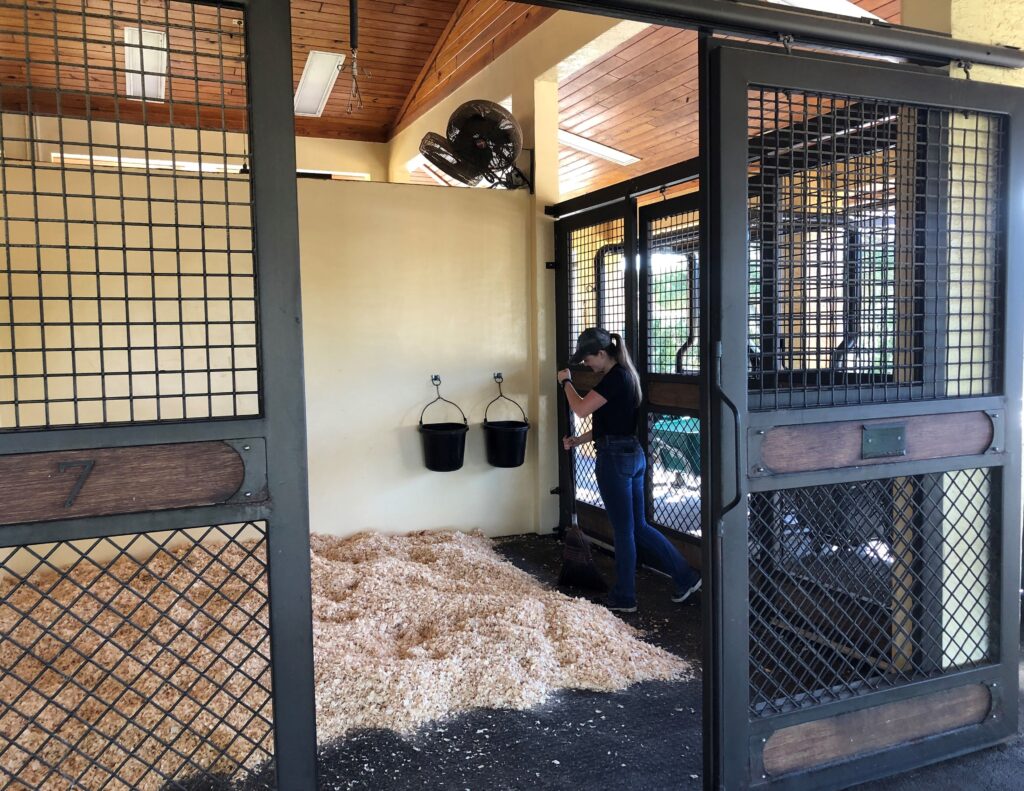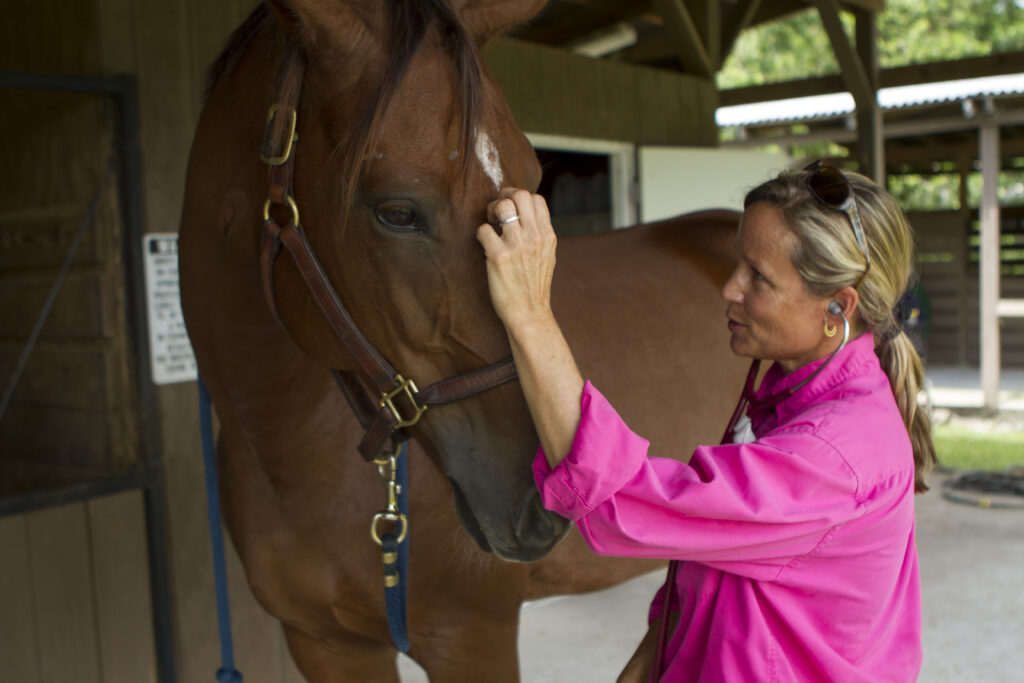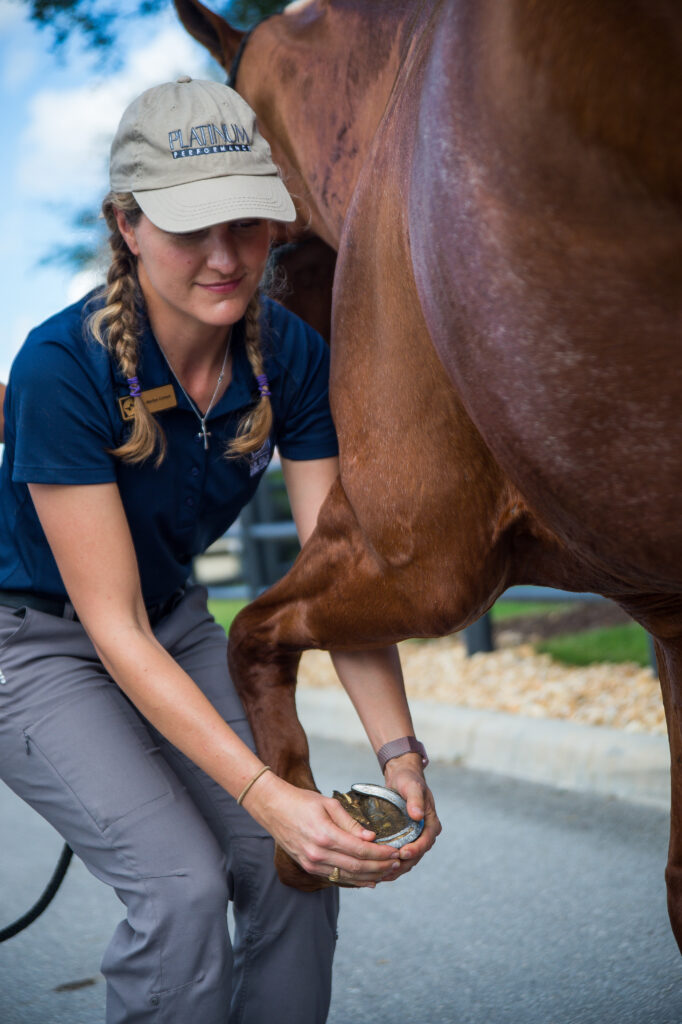Considerations for the Aging Performance Horse | Part 2
Catch up on Part 1 of Considerations for the Aging Performance Horse first by clicking here.
Provide a safe, comfortable environment

Ensuring your aging has a well-bedded, sanitary space with adequate water and protection from rain, snow, direct sun, and biting insects will help keep them comfortable. Middle-age and senior horses may also become more sensitive to respiratory irritants such as mold, fungus, dust, and pollen. As a result, it is recommended that barn and stall cleaning is done while the horse is in turnout or being ridden so they do not breathe in dust stirred up during cleaning. Minimizing their exposure to these irritants by maintaining a clean and well-ventilated stable will go a long way in keeping an older horse healthy.
Schedule regular veterinary performance evaluations
Like all athletes, horses can experience physical setbacks and are not always so quick to bounce back as they age. Osteoarthritis and laminitis are two common medical conditions that become more prevalent with age. It is important for the middle-age and senior performance horse to be managed with proper veterinary care, farriery, and a suitable training program.
Routine performance evaluations by a veterinarian are a useful tool in detecting subtle changes in a horse’s gait and movement before issues become injuries. A veterinarian will be able to suggest the appropriate treatment, such as anti-inflammatories, joint injections, biologic therapies, or alternative medicines, to maintain and even increase the horse’s flexibility, range of motion, balance, and ease any discomfort. Many owners begin consulting their veterinarian on regenerative and alternative therapies well before their horse has reached senior years as these therapies may help to support longevity in performance and better health for the horse’s organ and musculoskeletal systems.
Pay attention to changes in behavior and contact your veterinarian
Changes in the horse’s behavior or energy level, even minor or seemingly unimportant changes, can be indicators of underlying issues or disease. Exercise intolerance, poor coat condition, weight loss, stiffness, dropping feed, or changes in how much water they drink can be signs that something may be going on and should be communicated to your veterinarian. The sooner issues are identified, the sooner the horse can receive the right care and ultimately ward off serious illnesses.

Periodic preventative care checkups, performed at least bi-annually, can be key to catching many age-related conditions and diseases that owners may not notice in their everyday care due to a gradual onset. Involving your veterinarian in the management of your senior horse will go a long way toward ensuring their health and happiness throughout their golden years. Reach out to your Palm Beach Equine Clinic veterinarian for any questions about your horse’s health at any age by calling 561-793-1599 to schedule an appointment.
Appointment Request
Please fill out this form and our staff will contact you to confirm an appointment.
